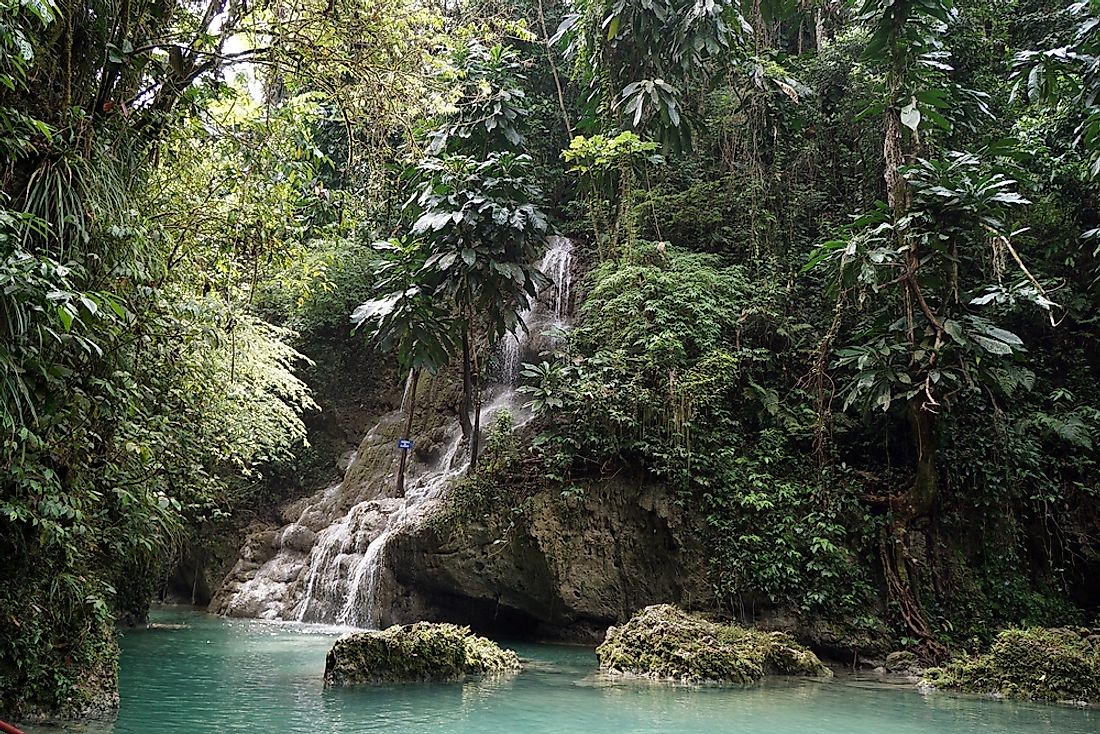What is a Tropical Rainforest Climate?

Primary Characteristics
A tropical rainforest climate, or equatorial climate, is a type of climate typical of tropical forests and regions along the equator. Tropical rainforests experience this tropical climate, a climate without any dry season. In addition, there is neither summer nor winter in the tropical rainforests, but it usually is hot and wet all months of the year with frequent and heavy rains. The average precipitation in tropical rainforests is sixty millimeters per year. Consecutive days in regions with a tropical climate exhibit similar weather conditions with the day-night variation of temperature higher than the annual average change in temperature.
Locations Around the World
Equatorial climate is prevalent in regions with the latitudes of at most ten degrees North and South of the equator, and the Intertropical Convergence Zone dominates these regions. Southeast Asia, South America, and Central Africa are the major regions which experience tropical rainforest climates. It is worth noting that an equatorial climate does not feature in all the areas along the equator, but tropical rainforest microclimates are typical in many regions such as the far North Queensland.
In some regions that exhibit an equatorial climate, there are uniform heavy rains throughout the year making them monotonously wet. For example, Andagoya in Colombia has this kind of rainforests. However, in many cases, such as in Palembang, Indonesia, the times of extended days and higher sun are specifically wetter than other periods. Moreover, while the tropical rainforest is a climate that is common in the regions near the equator, some exceptional instances exist whereby areas that are relatively far from the equator can experience the equatorial climate. For example, Fort Lauderdale in the US and Santos in Brazil are regions which are far from the equator, but they exhibit the tropical climate, though they have remarkably warmer and colder periods in a year.
Flora and Fauna
The combination of continuous warm and abundant moisture in the tropical rainforests make it provide suitable environments for many animals and plants. In fact, the world's highest diversity is in the tropical rainforests, where more than fifteen million species of animals and plants live in these regions. Besides, the hot and humid conditions of the equatorial climate provide suitable habitat for bacteria and other microbes. They are consequently active at all times; therefore, they decompose matter on the forest floor, which in turn add nutrients to the soil. However, the land cannot store the nutrients because the plants in these regions rapidly consume the nutrients. In addition, a large percentage of nutrients that the soil absorbs from the decomposed matter is leached out by a significant amount of rainfall. As a result, the land in the tropical rainforests remains acidic and infertile.
Notable Cities with a Tropical Rainforests Climate
In Africa, some of the notable cities with tropical rainforests climate are Kisumu in Kenya, Kribi in Cameroon, Moroni in Comoros and Kampala Uganda. In North America, the cities are Limon in Costa Rica, Port Antonio in Jamaica, Kapaa in the US and Punta Gorda in Belize. The cities in South America are Florencia in Colombia and Manaus in Brazil. Others in Asia include Bogor, Medan, and Biak in Indonesia, while in Oceania; some of these cities are Port Villa in Vanuatu and Suva in Fiji.











